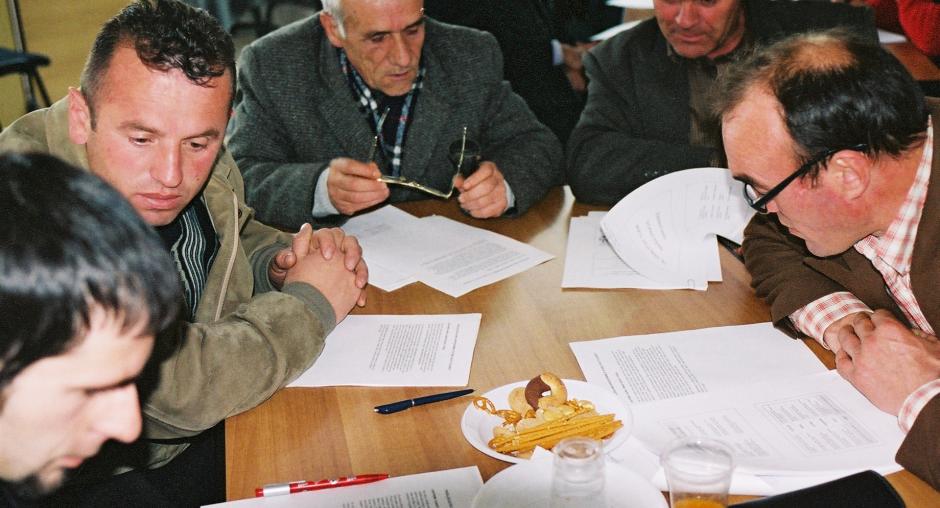Kosovo officials learn how to uphold human rights
"More and more municipalities are abandoning this practice, finding other legal ways to increase their revenues," says Fedzat Sagdati, an OSCE Human Rights Training Officer. Over the last two years, the OSCE Mission in Kosovo has been delivering a training programme to help local decision-makers understand human rights standards and know how to apply them in their daily work.
By the end of 2006, officials in 23 of Kosovo's 30 municipalities will have taken part in the course. Participants come from municipal directorates in all areas - urban development, civil registration, social welfare, education and health care - as well as from the police and judiciary.
Applying human rights
"Our training course focuses on the principles of legality, legitimacy, necessity, non-discrimination, equality and proportionality," says Sagdati. "But we aim to ensure that they are addressed with Kosovo's particular situation in mind."
Prior to NATO's military intervention in 1999, Kosovo was administered by Serbia. Following the conflict's end, Kosovo was placed under United Nations administration, which has been helping to create and develop Kosovo's Provisional Institutions of Self-Government. The OSCE, as a part of the administration, is charged with institution-building and promoting human rights.
"The programme's central message is that upholding human rights has practical benefits, both for officials and citizens," says Sagdati.
"By learning about human rights standards, officials are minimizing their chances of making decisions that do not comply with them. This in turn decreases the number of complaints that people might have about the work of municipal bodies, which is becoming more effective and efficient."
The training programme
The OSCE human rights course consists of ten weekly three-hour sessions that are divided into two parts. The first part focuses on theory, covering the UN system for protecting and promoting human rights, European human rights standards, as well as legislation and human rights in Kosovo.
The second part is practical, aiming to develop the skills necessary to apply the theory. Participants learn skills such as active listening, paraphrasing and summarizing, physical communication, and building positive relations and perceptions. All these are needed for handling the difficult situations officials often face at work.
"We try to establish a link between human rights and these practical skills by focusing on the principles of international human rights law," said Diamant Kastrati, a Human Rights Training Officer from the OSCE Mission's field office in Peja.
Alija Fazli, a Judge in the Prizren Offence Court, who is currently participating in the course,is especially enjoying the first part. "During our formal studies, we learned about human rights principles, but only a few judges had the chance to go deeper into the subjects that we are now discussing in this course."
Different professions, common objective
Dr. Erdina Kabashi, public health co-ordinator with the municipal directorate for health and social welfare in Prizren, liked the fact that participants represented a mix of professions. They brought in their range of experiences, discussing how they would solve problems in various situations.
"As part of the general administration," she said, "we deal with clients daily, so it was extremely useful to learn how to treat people who are upset and angry - how to talk to them and respond to their requests."
Although in 2007 the OSCE Mission will no longer focus on institution-building, it will continue to help develop existing institutions through proactive monitoring. This includes four steps: monitoring the work of local officials, reporting on deficiencies, recommending corrective actions, and where necessary, building the capacity of local institutions through training programmes such as this one.

